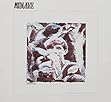When to Use the Perfect Tense
I recently wrote this for a former co-worker’s friend, who is Vietnamese. The friend had insisted upon using the present perfect tense in instances where the simple past tense would have been more appropriate.
Think of “perfect” as meaning “complete”: that is, the action being described has been completed, or will be completed.
People typically use the perfect tense when the action they are describing has some relevance to the present moment. Perfect tense also lends a sense of “immediacy” to the verb phrase and gives the impression that either an action has been completed recently or that the action is intrinsically linked to the current moment.
For example, notice the distinction between
Simple Past tense: I studied for my test.
and
Present perfect tense: I have studied for my test.
The latter phrase gives the impression that the studying has recently taken place and that you are prepared for the test. The former phrase is ambiguous because is gives no clue to when the studying took place or if you are finished studying.
Another example:
Simple Past tense: I embarked on a long journey.
and
Present perfect tense: I have embarked on a long journey.
The latter phrase gives the impression that you are still on the journey. The former phrase is ambiguous, because it can mean something that happened in the distant past: “I was 16 years old when I left home. I embarked on a long journey and sailed to Spain…” In that context, you wouldn’t say “I have embarked on a long journey…” because the action is not immediate and has no direct relevance to the present moment.








